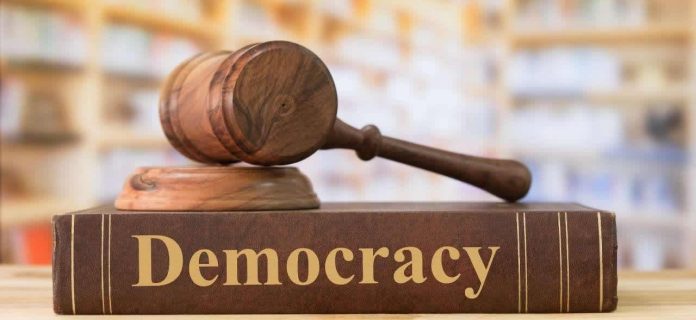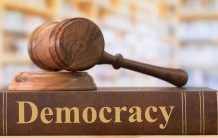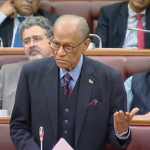As a programme director with the United Nations, having worked in up to 110 countries of the world, the author considers his 2 missions to Rwanda in 1994 – just before and soon after the genocide – as by far the most difficult, revealing of the darkest side of human nature but also how hope is then regained.
THE EVENT: Genocide i.e. mass murder of 700,000 to 850,000 Tutsis and moderate Hutus by Hutus extremists in Rwanda.Radio Mille Collines of Kigali gave, in 1994, this MOST EXTREME of all instructions to militants: “N’oubliez pas (de tuer) les femmes et les enfants”. A definite objective to ELIMINATE another group of humans.
WHEN: Between April 7 and July 15, 1994.
PERPETRATORS: Hutu-led government and spontaneous militias called Interahamwe (“those who strike as one”).
POSSIBLE CAUSES: Since 1973, President Juvenal Habyarimana, a Hutu, had run a totalitarian regime in Rwanda, which had excluded all Tutsis from participation and from power. That changed on August 3, 1993 when Habyarimana signed the Arusha Accords, which weakened the Hutu hold on Rwanda and allowed Tutsis to participate in the government. This greatly upset Hutu extremists.
On April 6, 1994, an airplane carrying President Habyarimana and Burundian president Ntaryamira was shot down (by whom is still not known for sure) on its descent into Kigali, killing all on board. Hutu extremists profited the most from Habyarimana’s death. Within 24 hours after the crash, Hutu extremists had taken over the government, blamed the Tutsis for the assassination, and begun the slaughter.
As an environmentalist, I did identify (during a mission to Rwanda a few weeks before the massacre) the factor of over-population as a serious possible cause of major conflict as well as the non sharing of power by the President. When my delegation of 3 from UNEP met President Juvenal Habyarimana I took the courage (going beyond the terms of our mission) to ask him for RECONCILIATION, reconciliation as a condition for peace, for receiving much needed external aid. He replied “quoi avec ces rebels, ces……., jamais”.
Another cause of scarcity of arable land laid in the Rwandan tradition of dividing family land into parcels amongst all children (an average of 6 to 11 children per family in many cases). The parcels had grown smaller and smaller, below viable size. The argument of the Interahamwe to get ordinary Hutus to become killers of their Tutsi neighbours was that they would then be able to take their land. It seems to have worked, alas.
100 DAYS OF SLAUGHTER: Genocidal killings began the following day: soldiers, police and militia quickly executed key Tutsi and moderate Hutu leaders, then erected checkpoints and barricades and used Rwandans’ national ID (identity cards) to systematically verify their ethnicity and kill Tutsi. These forces recruited or pressured Hutu civilians to arm themselves with machetes, clubs, blunt objects and other weapons to rape, maim and kill their Tutsi neighbors and destroy or steal their property.
The killings began in Rwanda’s capital city of Kigali. The Interahamwe an anti-Tutsi youth organization established by Hutu extremists, set up road blocks. They checked identification cards and killed all who were Tutsi. One of the worst massacres was that of 5,000 people who had taken refuge in a Catholic Church in Kigali which was entered by force by the Interahamwe rioters who massacred every one including the priest who tried to stop them.
As the brutal killings continued, the world stood by, unable to intervene on time in this isolated hilly country (le pays aux mille collines). An estimated 100 000 soldiers/gendarmes would have been necessary to stop the slaughter, which lasted 100 days. The Rwanda genocide left 500,000 to 850,000 Tutsis and Hutu sympathizers dead, equivalent to half the population of Mauritius.
Once the killings started, RTLM (Radio Télévison des Milles Collines) went beyond just espousing hate; they took an active role in the slaughter. The RTLM called for the Tutsi to be ‘cut down to size’ . The most terrible uttering I’ve ever heard on a radio was this: “N’oubliez pas les femmes et les enfants”, as an instruction to the killers.This revealed the true nature of the event i.e. a genocide, meaning eliminating completely the Tutsi tribe.
LESSONS FOR MANKIND:
- Past happening in history are ignored. Consider the killing of 6 million Jews by Hitler in the 1940’s, the gradual elimination of red Indians of North America and aborigines of Australia by the colonizers, the slave trade, the Biafra war of secession in Nigeria of 1966, which resulted in over 1 million deaths mainly by starvation, the gulags of Stalin etc etc The lessons of darkness in human history are not sufficiently known, not sufficiently learnt,
- Power which is NOT shared, which is accaparer entirely by one group at the detriment of others is a sure source of on-coming conflict. So is the ignoring the wisdom of the provisions enshrined in theUniversal Declaration of Human Rights of UN(for example that which specifies the rights of all to political representation and participation)
- Internal divisions which label citizens of the same country as tribes or communities (in the case of Rwanda as Hutu or Tutsi, in Nigeria as Ibo, Hausa, Yoruba, that of the US as white/black/hispanics/other etc, that of Mauritius as H/M/GP/SM (fortunately soon a classification of the past!)
POSITIVE RESULTS: An enormous inter-agency solidarity by the UN, including us in UNEP, all aid organisations, food and medical aid, as well as from many governments immediately concentrated on Rwanda, started the re-building, the healing and the recovery process, after an event which no one was able to prevent.
After the tribunals for the perpetrators, there has been national reconciliation even cases of neighbours which escaped while their families were massacres meeting the killers to try and understand and to forgive. The Truth and Reconciliation Commissionof South Africa, as lead byNelson Mandela and Desmond Tutu, has gone a long way as a positive example for the rest of the world.
Rwanda itself as a country has rebuilt itself economically and politically, under the able leadership of Paul Kagame, with a huge participation of women in the political and economic life of the country.
IN THE WORLD TODAY: The 20th century witnessed 55 wars, two of them World Wars, leaving up to 100 million dead. The 21st century must be labeled the century of peace. But are we succeeding?
Israel specifically wants the West bank, East Jerusalem and Gaza where they are destroying all housing infrastructure, hospitals, schools, water and food supplies, thereby starting the elimination of the people of Gaza, men, woman and children. “What is happening in the Gaza Strip with the Palestinian people has a few parallels in history. For example the Rwanda genocide and the pogrom when Hitler decided to kill the Jews.” The UN Security Council, the ICJ, the EU, Egypt and other Arab states voiced their concern about a possible coming genocide of the people of Gaza by Israel. After almost 32,000 deaths. Nothing doing,Netanyahu and other Israeli leaders are pursuing their starving and elimination policy. We all, all countries, all peoples of the world have the duty to stop them, declare a ceasefire NOW and let rebuilding start!
Each country, each individual, must contribute to it. Our Republic is remarkable for its multicultural co-existence, for tolerance and for economic sharing: a true mini-united nations, an example for the world? But keep working at it is essential, so is education for peace and sustainability.
By Dr Michael ATCHIA
(Former United Nations Programme Director)
Reference: Declaration on the Rights of Persons Belonging to National or Ethnic, Religious and Linguistic Minorities. UN General Assembly resolution 47/135 of 1992
Reaffirming that one of the basic aims of the United Nations, as proclaimed in the Charter, is to promote and encourage respect for human rights and for fundamental freedoms for all, without distinction as to race, sex, language or religion,
Reaffirming faith in fundamental human rights, in the dignity and worth of the human person, in the equal rights of men and women and of nations large and small,
Desiring to promote the realization of the principles contained in the Charter, the Universal Declaration of Human Rights, the Convention on the Prevention and Punishment of the Crime of Genocide, the International Convention on the Elimination of All Forms of Racial Discrimination, the International Covenant on Civil and Political Rights, the International Covenant on Economic, Social and Cultural Rights, the Declaration on the Elimination of All Forms of Intolerance and of Discrimination Based on Religion or Belief, and the Convention on the Rights of the Child.




![[Yoga] A shared legacy, a shared future](https://sundaytimesmauritius.com/wp-content/uploads/2025/06/Yoga-Article-HC-218x150.jpg)
![[Khutbah – La Réflexion du Vendredi] Tawakkul, la confiance absolue en Allah (swt)](https://sundaytimesmauritius.com/wp-content/uploads/2025/06/Tawakkul-218x150.jpg)

![[Poetry corner] In memory of my friend Swabir Goodur](https://sundaytimesmauritius.com/wp-content/uploads/2025/04/CASAM-218x150.jpg)
![[Doha Football Academy] Eid Cup 2025](https://sundaytimesmauritius.com/wp-content/uploads/2025/06/c34ff12a-6673-4967-9709-cd171a61efd6-1024x683-1-150x150.jpg)
![[Ex-parlementaires] Les manifestants du MSM renonceront-ils à leur pension ?](https://sundaytimesmauritius.com/wp-content/uploads/2025/06/pic-150x150.jpg)


![[Doha Football Academy] Eid Cup 2025](https://sundaytimesmauritius.com/wp-content/uploads/2025/06/c34ff12a-6673-4967-9709-cd171a61efd6-1024x683-1-100x70.jpg)
![[Ex-parlementaires] Les manifestants du MSM renonceront-ils à leur pension ?](https://sundaytimesmauritius.com/wp-content/uploads/2025/06/pic-100x70.jpg)
